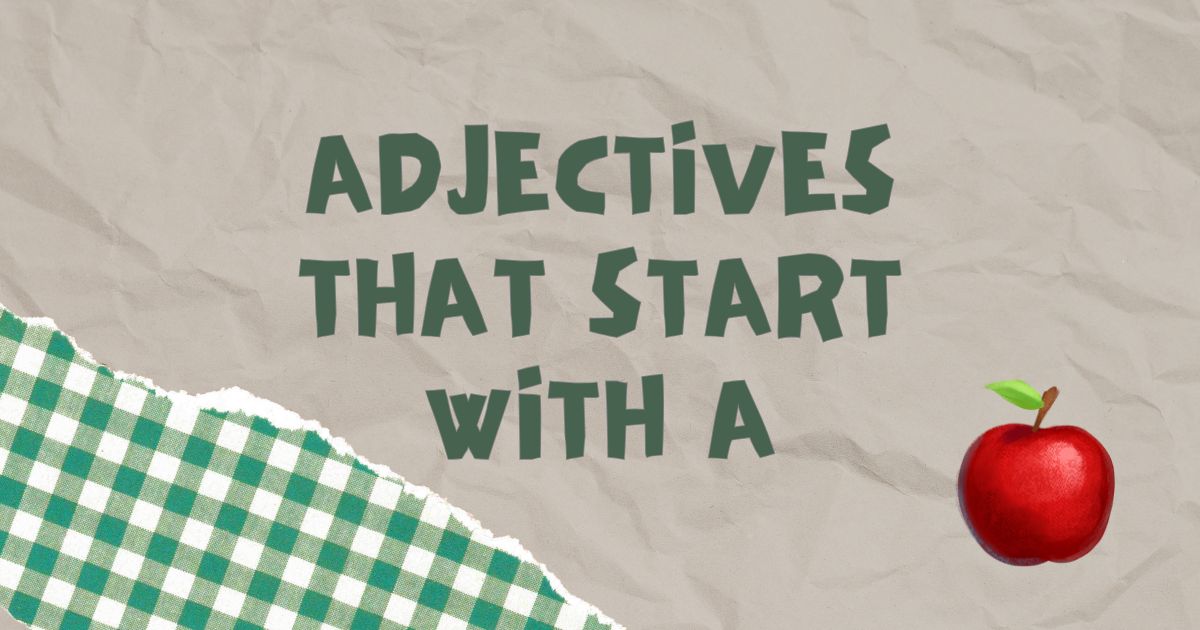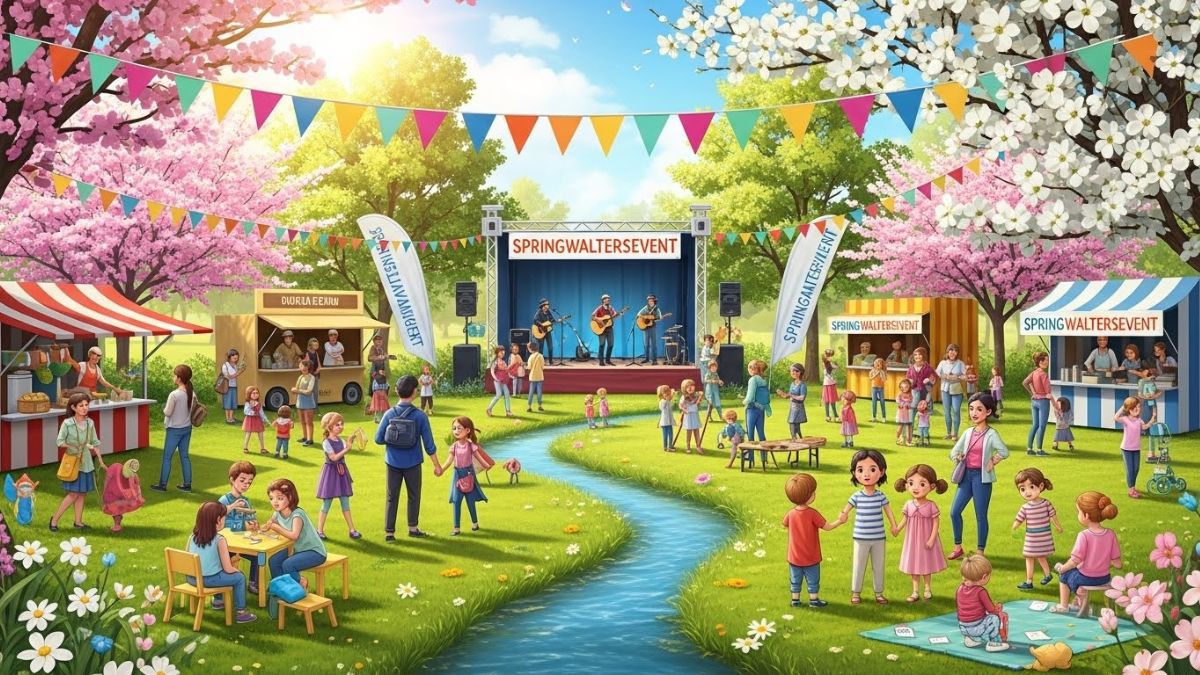adjectives that start with a are essential in communication. They paint a clearer picture, add emotional depth, and describe qualities or states of being. Focusing on adjectives that start with “A” gives us a unique look into descriptive language. From expressing positivity to defining character, these adjectives help transform dull writing into engaging content.
Why Focus on Adjectives Starting With A
Starting with “A” not only organizes vocabulary learning, but it also allows easier recall. “A” adjectives often carry strong traits and characteristics, making them useful in everyday conversations, storytelling, resumes, and creative writing. They’re also some of the most versatile words out there.
Admirable
The word “admirable” is used to describe someone or something worthy of respect and praise. It’s often used to recognize strong morals, courage, or achievement. When we say someone has done an admirable job, we’re recognizing effort and excellence.
Adaptable
Adaptable means someone who can adjust easily to new conditions. This adjective is especially important in work environments where change is constant. Being adaptable is often seen as a key life and professional skill in today’s fast-paced world.
Astonishing
When something is so surprising that it leaves you in awe, it is “astonishing.” This adjective adds dramatic flair to writing or speech, highlighting something beyond the ordinary. Think of seeing a magic trick for the first time—completely astonishing!
Aggressive
“Aggressive” often carries a negative connotation, used to describe forceful or hostile behavior. However, in sports or business, being aggressive can mean being assertive and proactive. It all depends on context.
Artistic
Describing someone as artistic suggests they have a natural talent or appreciation for the arts. Whether it’s painting, music, or design, an artistic person sees and expresses beauty in unique ways. This adjective is commonly used in resumes and bios.
Awkward
We’ve all felt awkward at some point. This word is used to describe situations or behavior that is uncomfortable or clumsy. Whether it’s an awkward silence or an awkward conversation, the feeling is universal—and so is the word’s usage.
Arrogant
“Arrogant” describes someone who has an inflated sense of their own importance. It’s typically seen in a negative light, used to point out ego or lack of humility. While confidence is good, arrogance crosses the line into overconfidence.
Affectionate
Affectionate people are warm, loving, and open with their emotions. This adjective is often used to describe relationships and personalities that are caring and nurturing. It brings a softness to any description.
Agitated
Feeling agitated means being restless, irritated, or disturbed. This adjective is often used in emotional or psychological contexts. Whether you’re stuck in traffic or waiting too long in line, you’ve probably felt agitated before.
Ambitious
An ambitious person has strong goals and is willing to work hard to achieve them. It’s a common term used in workplaces, schools, and even dating profiles. Ambition is usually seen as a good trait—though too much of it can turn toxic.
Amiable
“Amiable” is a gentle, friendly, and pleasant word. It’s the kind of trait you’d want in a good neighbor or colleague. Someone amiable is easy to get along with and brings positive energy wherever they go.
Authentic
Authenticity is highly valued today. Whether it’s in branding, personalities, or friendships, being authentic means being real and genuine. This adjective helps build trust and shows depth of character.
Aesthetic
If something is aesthetic, it’s visually pleasing or artistically stylish. This adjective is often used in design, fashion, and social media. “Aesthetic” is all about the beauty and harmony of visuals.
Anxious
Anxious refers to a feeling of worry or nervousness. It’s frequently used in both casual and clinical settings. Everyone feels anxious from time to time, especially before major events like exams, job interviews, or speeches.
Agile
Agile describes someone or something that moves quickly and easily. It can be used for physical agility—like a gymnast—or mental agility, such as quick thinking in problem-solving. It’s also a popular term in software development methodologies.
Abrasive
This adjective describes a harsh or rough personality, often unlikable or blunt. It can also refer to physical textures. In people, an abrasive manner might come off as offensive or insensitive.
Altruistic
An altruistic person is someone who puts others’ needs before their own. It’s a noble trait, often admired in volunteers, caregivers, or social workers. Altruism reflects true generosity and selflessness.
Animated
An animated person is lively, energetic, and expressive. Think of someone who tells stories with great enthusiasm, using hand gestures and varying their voice. This adjective adds vibrancy to character descriptions.
Analytical
An analytical person is logical and skilled at breaking down problems. This trait is often linked to scientists, engineers, and strategists. It’s a valuable quality for solving complex problems and making informed decisions.
Average
“Average” might seem like a dull word, but it has its place. It describes something typical or in the middle range—not too high, not too low. While not flashy, it’s useful in comparison and measurement.
Assertive
Assertiveness is the sweet spot between passivity and aggression. It means standing up for yourself in a respectful, confident way. Assertive individuals communicate clearly and don’t allow others to walk all over them.
Astute
Astute means sharp, clever, or perceptive. Someone astute notices details others miss and often makes smart decisions based on observation and intuition. It’s a compliment to someone’s intellect and awareness.
Apprehensive
This word captures a mix of fear and uncertainty. Someone feeling apprehensive might hesitate before making a decision or entering a new situation. It’s often used to describe the nervous anticipation of an unknown outcome.
Conclusion
Adjectives starting with “A” provide diverse meanings, enriching language and enhancing expression in various contexts, including writing, resume writing, and vocabulary expansion.
FAQs
What are some common positive adjectives that start with A?
Words like admirable, affectionate, authentic, and ambitious are often used in a positive light to describe people and experiences.
How can I use A adjectives in daily conversation?
Try to describe people or experiences around you. Instead of saying “nice,” say “amiable” or “artistic” to be more precise and engaging.
Are there any professional uses for A adjectives?
Absolutely. Words like analytical, assertive, and ambitious are great for resumes, interviews, and performance reviews.
What’s the difference between anxious and apprehensive?
While both involve nervousness, “anxious” is often more intense or clinical, whereas “apprehensive” is more about uncertainty or mild worry.
Can one adjective have both positive and negative meanings?
Yes, for example, “aggressive” can mean hostile or assertively proactive depending on context.











